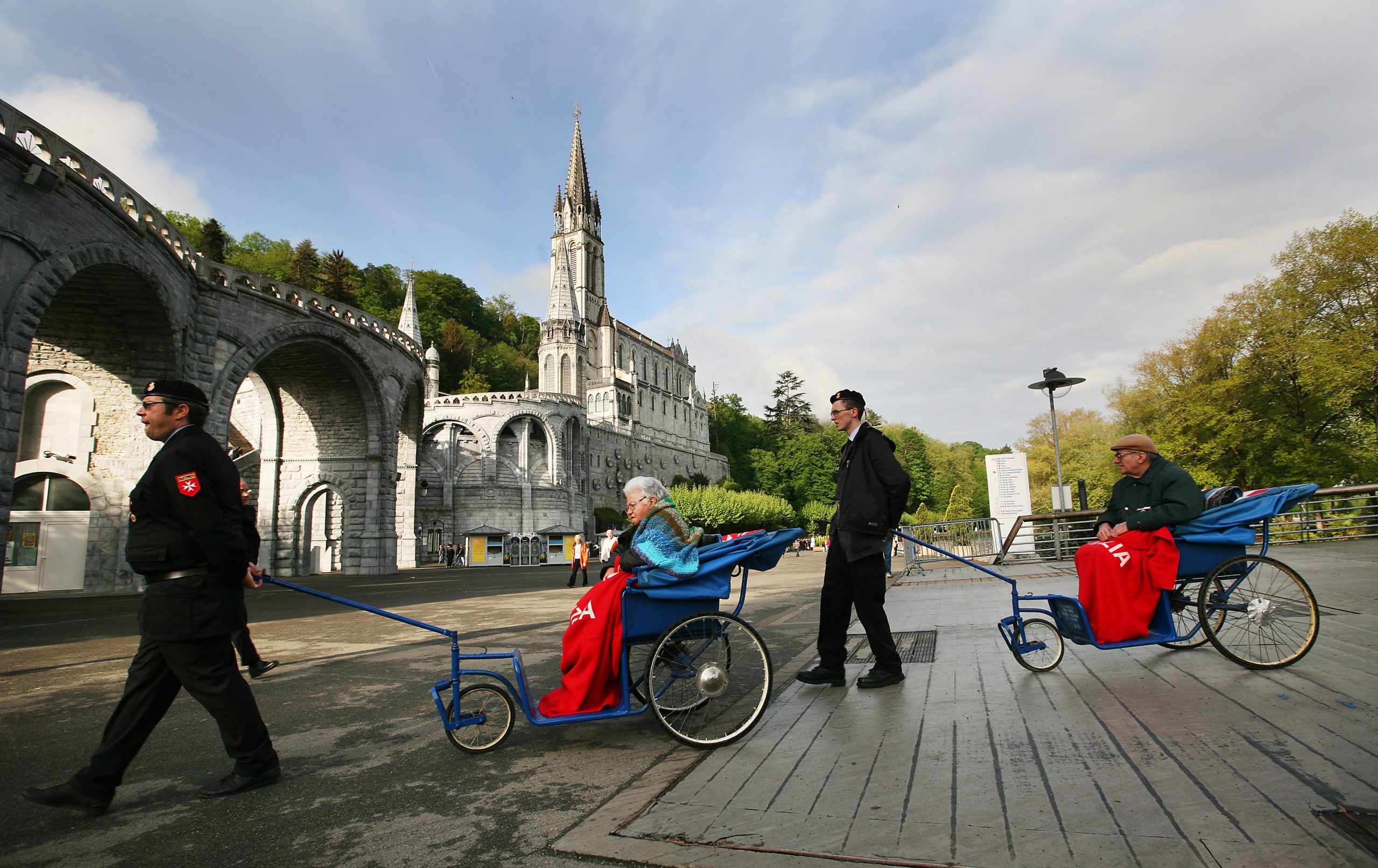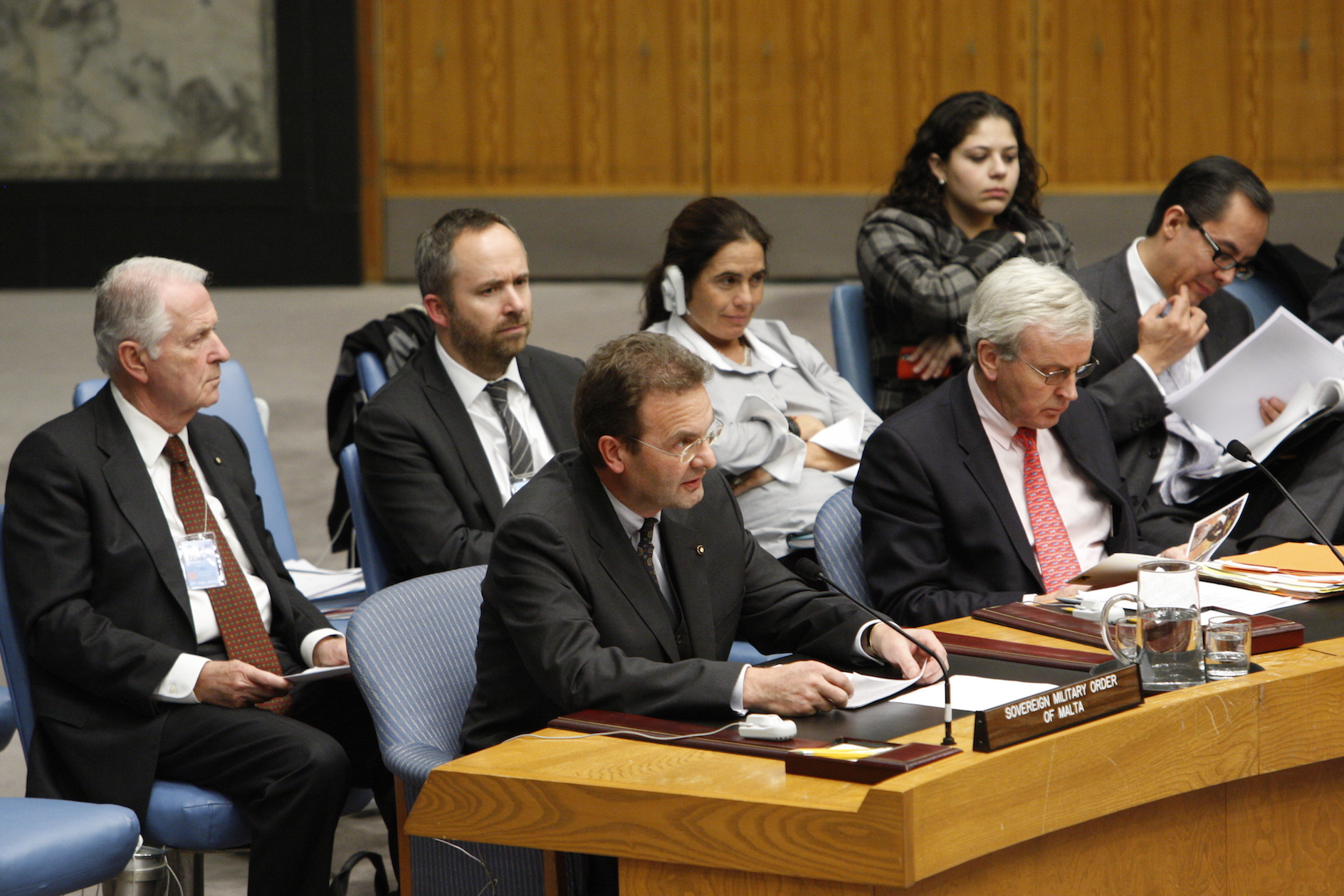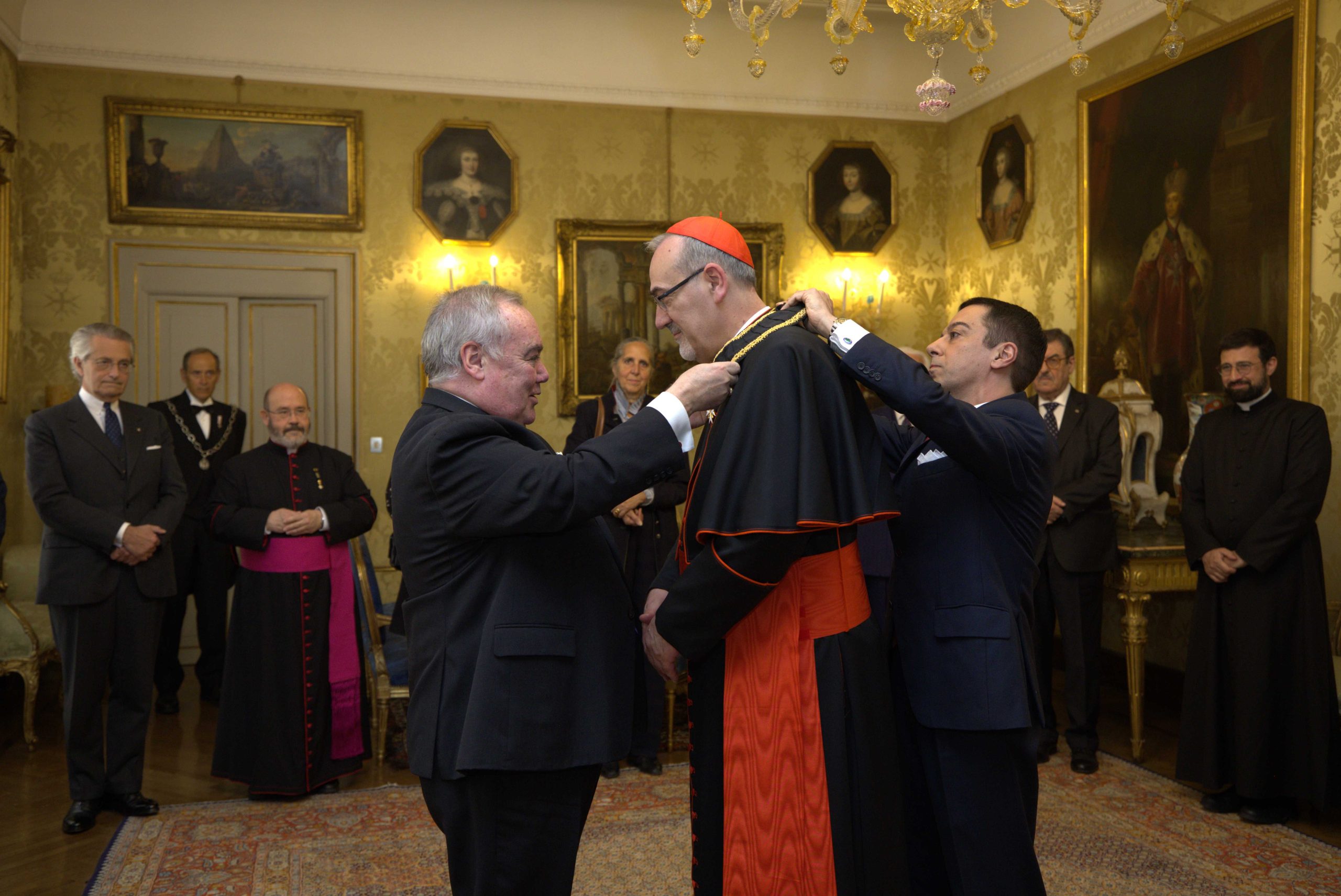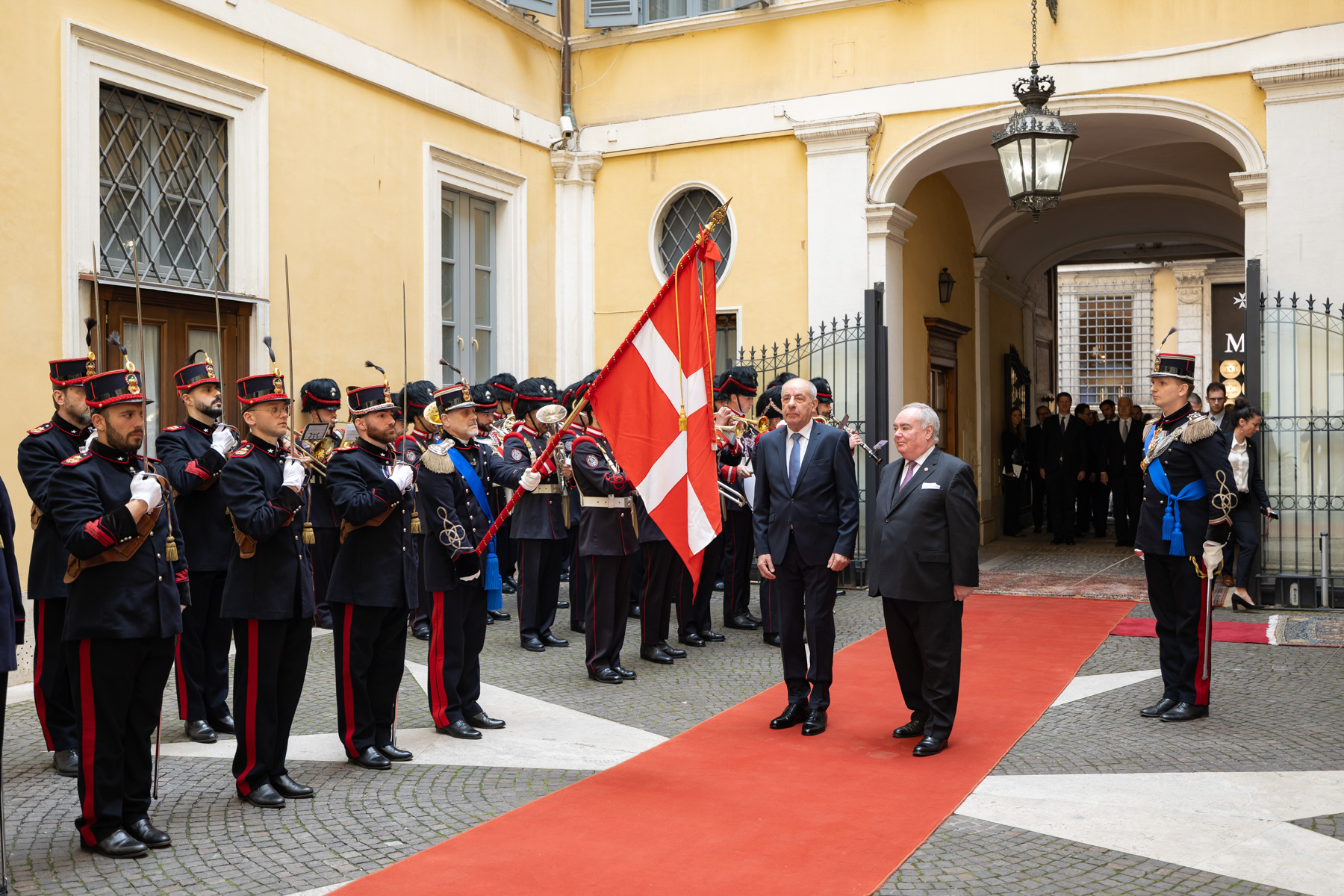The international community has to ensure the safety of civilians in armed conflict and the respect of the fundamental principles of international human rights, which are first of all ‘precepts of human decency and civilization’. This is the Order of Malta’s Grand Hospitaller Albrecht Boeselager speaking in New York at the United Nations Security Council as a member of the Order of Malta’s Sovereign Council.
The Order’s Minister for International Cooperation and Humanitarian Affairs had been requested to make a statement on the ‘Protection of Civilians in Armed Conflict’ on the basis of the Order of Malta’s long experience in assisting victims of conflicts in Africa and Asia, after having been in the front line for centuries in treating the suffering and sick in Europe.
Today, 90% of the victims of wars are civilians compared to the 90% of military victims a hundred years ago. Over the last decade, the Grand Hospitaller pointed out, civilians have been used as ‘human shields’ in the so-called ‘asymmetric’ struggles between governments on one side and insurgent or terrorist groups on the other in Iraq, in Afghanistan and in Gaza. He denounced the ‘incredible atrocity’ perpetrated in east Congo with the ‘systematic use of rape and mutilation’ as a ‘tactic of choice of militia groups’. In the Democratic Republic of Congo, terrorism is becoming endemic, with militiamen and rebels perpetrating sexual violence against defenseless civilians, ‘often young women or even little girls and sometimes little boys’. Over the past four years, he explained, the Order of Malta has assisted some 30,000 women victims of these rapes and carried out intensive counselling with soldiers and rebels to prevent these crimes against humanity in the future.
Refugee camps, Boeselager continued, have also become targets of military raids and even humanitarian aid workers, including the Order of Malta’s staff members in Darfur, have ‘become the deliberate or incidental victims of these tactics’. The Order’s volunteers have also been prevented from entering the refugee camps in Sri Lanka. In Afghanistan – where 60% of the attacks on humanitarian workers occur – the Order has lost several staff members in ambushes and shootings. The cluster bombs used in south Lebanon have also caused serious mutilations of civilians and the Order’s maternity hospital in Bethlehem, where some 46,000 babies have been born since 1990, has been attacked twice in recent years.
The Grand Hospitaller explained how the Order, in its work with the victims of armed conflict, has pinpointed four types of violence perpetrated against civilians that the Security Council should address. These are: direct attacks on civilians, including use of sexual violence, suicide bombings, or assaults on facilities for refugees and displaced persons. Taking civilians hostage to serve as ‘human shields’ or misusing protection facilities such as hospitals or aid stations for the purpose of protecting combatants. Inflicting ‘incidental or collateral’ damage upon civilians, including aid workers and medical personnel, as military operations that create a high degree of risk that innocent civilians will be killed or injured. Targeting humanitarian aid workers, for the purpose of denying civilians refuge, food, shelter or medical care.
‘There can be no question,’ Boeselager spelt out, ‘that these kinds of actions violate basic principles of international humanitarian law, including the Fourth Geneva Convention Relating to the Protection of Civilians in Armed Conflict’. Whether or not a particular conflict ‘technically constitutes an international conflict’, and whether or not the combatant groups or militias are ‘formally’ parties to the Convention, ‘international humanitarian law has evolved to the point that all combatants must recognize and obey these fundamental precepts of human decency and civilization’. In short, these principles and values must be regarded as part of ‘customary international law’ and, as such, they are universally binding.
It is thus important, he added, that those who violate these precepts be punished, whether they be the direct perpetrators or those who hold ‘command responsibility’. The Security Council should ‘endorse these principles; insist that all combatants observe them; condemn violations of these principles; urge all Member States to take appropriate action to investigate and punish violations; consider referring to the International Criminal Court any gross violations that Member States are unable to pursue through the ordinary course of their domestic law and procedure’.
In pleading for the outlawing of land mines and the production and distribution of those weapons that have mutilated so many civilians, especially children, the Grand Hospitaller has pledged the Order of Malta’s support to prevent the spread of nuclear weapons and its commitment ‘to work with other members of the international community to re-establish a firm and effective line between combatants and civilians in armed conflict, with the goal of assuring to the extent possible that civilians will not become the innocent victims of these struggles’.










